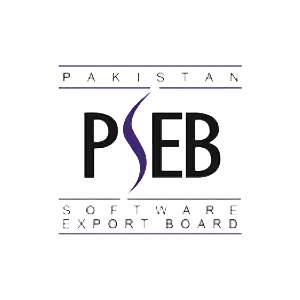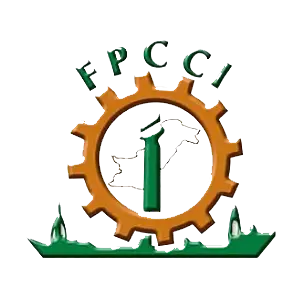Imagine having the power to bring your digital dreams to life, be it a captivating website, a game that enthralls millions, or an app that solves a pressing problem. Coding, the language of computers, unlocks this potential, empowering you to translate your ideas into reality. Whether you’re a complete beginner or looking to refine your existing skills, this guide serves as your roadmap to becoming a successful coder. We’ll demystify the core concepts, equip you with essential skills, and guide you through navigating the exciting world of coding careers. So, buckle up, unleash your curiosity, and get ready to embark on a journey that will transform you from a coding novice to a confident creator shaping the digital landscape.
Part 1: What is Coding?

Demystifying the Magic: Coding 101
Have you ever stopped to wonder how your phone instantly pulls up a website or how apps magically respond to your touch? The answer lies in the intricate world of coding, also known as computer programming. In simpler terms, it’s like creating a set of detailed instructions for a robot (in this case, a computer) to follow. Think of it as writing a recipe for cookies, but instead of using flour and sugar, you’re using lines of code to tell the computer how to process information and perform specific tasks.
Let’s Talk Directions: Analogy for Beginners
Imagine giving your friend directions to your house. You tell them which streets to take, where to turn, and what landmarks to look for. Similarly, coding uses building blocks like variables (think of them as placeholders for information), data types (like the different ingredients in your recipe), and control flow (the order in which you combine those ingredients) to guide the computer. So, instead of streets and turns, the code tells the computer how to process and manipulate data to achieve a desired outcome.
A World of Possibilities: Types of Coding
The beauty of coding lies in its versatility. Different types of coding exist, each serving a unique purpose:
- Web Development: This is the architect behind the websites and online applications you visit. It’s like building the digital houses you see on the internet, ensuring their structure, functionality, and visual appeal.
- App Development: Ever wondered how the games, social media platforms like Facebook, WhatsApp, YouTube, Instagram, LinkedIn, etc., and productivity tools on your phone work? App development brings them to life. It’s the code that crafts the software experience you enjoy on your mobile devices.
- Data Science: This domain dives deeper, using code to analyze and interpret vast amounts of data. Data analysts sift through mountains of information to uncover hidden patterns and trends, helping us make informed decisions based on data-driven insights. To support this process, data annotators play a crucial role through data annotation. This involves making data more understandable for computers by labeling and categorizing information and helping machines capture and interpret content from various sources like images and videos. Data annotation is a fundamental step in preparing datasets for machine learning and artificial intelligence applications.
These are just a few examples, and the world of coding continues to expand. It’s a powerful tool that empowers you to bring your digital ideas to life, whether it’s building a website, creating an app, or unlocking the secrets hidden within data. So, the next time you interact with technology, remember: there’s likely a coder whispering instructions in the language of computers, making the magic happen.
Part 2: Getting Started with Coding: Your First Steps into the Digital World

So, you’re ready to embark on your coding journey! But where do you begin with all the languages and options at your fingertips? Don’t worry, we’ve got you covered.
Choosing Your Coding Companion: Picking the Right Language
As a beginner, two languages shine brightly: Python and JavaScript.
Python is known for its friendly syntax, resembling plain English, making it easy to learn and understand. It’s versatile, tackling web development, data analysis, and even machine learning.
JavaScript powers the interactive elements of websites and mobile apps, making it crucial for anyone wanting to build dynamic web experiences. Additionally, it boasts a substantial and supportive community.
Ultimately, the “best” language depends on your goals. If you’re unsure, start with Python for its broad range of applications and ease of learning.
Learning Pathways: Where to Find Your Coding Oasis
The beauty of the digital age is the abundance of learning resources:
- Online Courses and Tutorials: Platforms like Coursera, edX, and Codecademy offer interactive courses and tutorials, often free or at affordable prices.
- Interactive Platforms: Sites like Codewars and HackerRank provide bite-sized coding challenges to practice and improve your skills in a fun way.
- Coding Bootcamps: Immersive programs offer intensive learning and career guidance, but come with a steeper price tag.
Tailoring Your Learning: Catering to Different Styles
Everyone learns differently! Here are approaches for various styles:
- Visual Learners: Explore platforms with colorful interfaces, animations, and visual diagrams to grasp concepts easier.
- Auditory Learners: Utilize video tutorials, podcasts, or even listen to code being read aloud to solidify understanding.
- Kinesthetic Learners: Jump straight into hands-on projects, experiment, and learn through active exploration.
Remember, the best approach is often a combination!
Small Steps, Giant Leaps: The Importance of Starting and Practicing
Don’t be intimidated by complex projects. Begin with small, achievable tasks like printing “Hello, World!” on your screen. Celebrate each victory, and gradually build your skills towards bigger goals. Consistency is key! Dedicate regular time to practice, even if it’s just 15 minutes a day. As you continue to code, your comfort and confidence will naturally increase.
Remember, the coding journey is a marathon, not a sprint. With the right tools, a focused approach, and consistent practice, you’ll unlock the exciting world of coding and be well on your way to becoming a successful coder.
Advanced Topics to Consider
As you progress in your coding journey, you may encounter scenarios where managing complex applications becomes crucial. Here are some advanced topics to explore that can help you build and deploy sophisticated software:
- Object-Oriented Programming (OOP): This powerful paradigm structures your code around objects, making it more modular, reusable, and easier to maintain.
- Containerization and Orchestration: This approach packages your application and its dependencies into lightweight, portable units called containers. Tools like Docker manage these containers, while platforms like Kubernetes orchestrate them at scale, ensuring efficient deployment, scaling, and management. Getting started with Kubernetes can be a valuable skill for building and deploying complex applications in the cloud.
Part 3: Level Up: Building Your Successful Coder Toolkit

Welcome to the next level! As you delve deeper into the world of coding, mastering key skills, collaborating with others, and staying updated are crucial elements for your success.
Sharpen Your Tools: Key Skills for Coding Mastery
Coding isn’t just about typing lines of code; it’s about approaching problems creatively and logically. Hone these essential skills:
- Problem-Solving: Untangle complex challenges by breaking them down into smaller, manageable steps. Think like a detective, analyzing, experimenting, and finding the most efficient solutions.
- Critical Thinking: Question assumptions, evaluate different approaches, and weigh the pros and cons before settling on an answer. Embrace a healthy dose of skepticism and be open to learning from your mistakes.
- Logical Reasoning: Navigate the flow of your code by thinking in a structured and organized manner. Trace the consequences of each line and ensure your logic leads to the desired outcome.
Remember, these skills are intertwined, each contributing to your overall coding mastery.
Together We Code: The Power of Collaboration
The coding community is a vibrant space filled with supportive individuals. Embrace collaboration:
- Join online forums and communities: Connect with other coders, ask questions, share knowledge, and learn from diverse perspectives.
- Team up on projects: Find collaborators with complementary skills and work together to build something bigger than you could alone.
- Mentor or be mentored: Share your knowledge with beginners or learn from experienced coders to accelerate your growth.
Remember, collaboration fosters learning, keeps you motivated, and expands your network.
From Theory to Practice: Building Projects for Experience
Learning by doing is key! Apply your acquired knowledge to real-world scenarios:
- Start small: Build simple projects like text-based games or basic websites to solidify your understanding.
- Gradually increase complexity: As you gain confidence, tackle more challenging projects that push your boundaries and showcase your skills.
- Focus on personal interests: Build projects that spark your passion, keeping you engaged and motivated throughout the journey.
Remember, each project adds a valuable brick to your coding foundation, preparing you for bigger challenges.
Version Control: Keeping Your Code Organized
As your projects grow, keeping track of changes becomes crucial. Enter version control systems like Git:
- Track revisions: Git allows you to see how your code has evolved over time and revert to previous versions if needed.
- Collaborate effectively: Work seamlessly with others, ensuring everyone is on the same page and avoiding conflicts.
- Professionalism: Mastering version control is a valuable skill sought after by employers and developers alike.
Remember, embracing version control empowers you to manage complex projects efficiently.
Remain at the Forefront by Embracing the Ethos of Continuous Learning.
Technology is constantly evolving, and so should your skillset:
- Follow industry trends: Stay updated on the latest technologies, frameworks, and best practices through blogs, webinars, and industry publications.
- Continuous learning: Never stop learning! Explore new languages, frameworks, and tools to expand your capabilities and adapt to the changing landscape.
- Contribute to open-source projects: Immerse yourself in real-world code, learn from established developers, and contribute to the broader coding community.
Remember, continuous learning is the key to staying relevant and thriving in the dynamic world of coding.
Important Tools to Learn for Coders
Every coder needs a toolkit to work efficiently. Here are three essential tools to master:
- Text Editor: A good coder always knows how to use text editors like Visual Studio Code, Sublime Text, and others. These tools provide syntax highlighting, code completion, and debugging features, making your coding experience smoother and more efficient.
- Project Management Tools: Stay organized and on top of deadlines with project management tools. A good option to pick is Airtable, or you can try other Airtable alternatives to keep your projects on track, especially when working on complex tasks. These tools help you manage tasks, collaborate with your team, and visualize your project workflow.
- Communication Tools: Effective communication is key in any coding project. Consider using platforms like Slack or Discord to discuss code, share ideas, and troubleshoot problems with your team in real time.
These tools will empower you to write clean code, collaborate effectively, and manage your projects efficiently. They’ll also equip you to communicate clearly with your team, leading to a smoother development process.
Part 4: Code Your Dream Job: Building a Successful Coding Career

Congratulations! You’ve mastered the fundamentals and honed your skills. Now, let’s explore the exciting world of coding careers and pave your path to success.
Choose Your Adventure: Exploring Diverse Career Paths
The beauty of coding lies in its diverse career options. Here are just a few possibilities:
- Software Developer: Design, develop, and test software applications, from desktop programs to mobile apps. Strong problem-solving and analytical skills are key.
- Web Developer: Build and maintain the structure and functionality of websites. Expertise in HTML, CSS, and JavaScript is essential.
- Data Scientist: Extract meaningful insights from vast data sets using coding skills and statistical knowledge. Strong analytical and communication skills are crucial.
- Mobile App Developer: Craft mobile apps for various platforms like iOS and Android. Familiarity with platform-specific languages and frameworks is important.
This list merely scratches the surface of available options! Explore these and other options to find the career that aligns with your interests and skills.
Equip Yourself: Essential Skills and Qualifications
Each career path has its unique requirements, but some general skills stand out:
- Solid coding foundation: Master at least one programming language and be comfortable with coding principles.
- Problem-solving: Approach challenges creatively and logically, finding efficient solutions.
- Collaboration: Work effectively with teams, communicate clearly, and embrace diverse perspectives.
- Adaptability: Stay updated with evolving technologies and continuously learn new skills.
Additionally, specific qualifications like degrees, certifications, and relevant experience may be required depending on the career path and employer.
Showcase Your Talent: Building a Strong Portfolio
Your portfolio is your digital calling card. Highlight your best coding projects:
- Choose diverse projects: Showcase your versatility and ability to tackle different challenges.
- Demonstrate quality: Present clean, well-documented code that reflects your attention to detail.
- Tell a story: Explain the project’s goals, your contributions, and the challenges you overcame.
- Keep it updated: Continuously add new projects as you learn and grow.
Remember, a compelling portfolio can grab an employer’s attention and land you your dream job.
Job Search Strategies: Landing the Perfect Role
Crafting a winning job search strategy is crucial:
- Target the right companies: Research companies whose values and projects align with your interests and skills.
- Network actively: Attend industry events, connect with professionals online, and build your professional network.
- Craft a strong resume and cover letter: Highlight your relevant skills and achievements, tailoring them to each job description. To create an awesome resume, you can check these PowerPoint resume templates or use an online tool like Canva.
- Ace the interview: Prepare technical questions, practice coding challenges, and showcase your passion and communication skills.
Remember, job searching is a journey. Be persistent, maintain a growth mindset, learn from each experience, and keep your goals in mind.
With dedication, talent, and the right tools, you can unlock a rewarding and fulfilling career in the ever-growing world of coding. Start coding your dream job today!
Conclusion
As you reach the end of this guide, remember that coding is not just about mastering syntax and commands. It’s about cultivating a problem-solving mindset, embracing continuous learning, and collaborating with a vibrant community. The world of technology is constantly evolving, and so should your coding skills. Keep exploring new horizons, contribute to open-source projects, and never stop pushing your boundaries. Remember, with dedication and the right tools, you can write your own success story in the ever-evolving world of code. So, step out, embrace the opportunities, and code your future, one line at a time!







